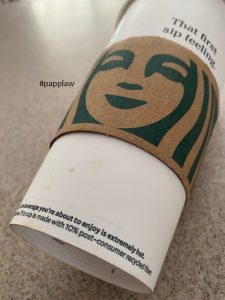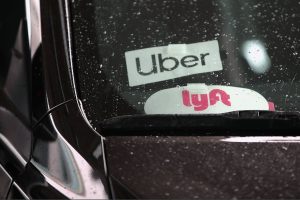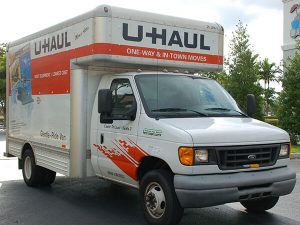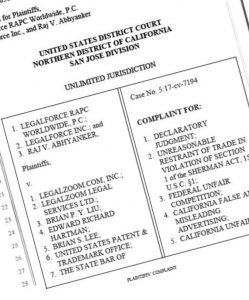Reasonable Efforts to Maintain Secrecy is a Question of Fact
Whether reasonable secrecy efforts were made is a question of fact. (San Jose Const., Inc., 155 Cal.App.4th at 1543 (“[W]hether SJC made adequate attempts to keep its prospective project information secret is for the jury to measure.”); In re Providian Credit Card Cases (2002) 96 Cal.App.4th 292, 306 (“[W]hether a party claiming a trade secret undertook reasonable efforts to maintain secrecy is a question of fact….”); Mattel, Inc. v. MGA Entertainment, Inc., 782 F.Supp.2d 911, 960 (C.D. Cal. Jan. 5, 2001) (“The determination of whether information is the subject of efforts that are reasonable under the circumstances to maintain its secrecy is fact specific.”). Here, for example, is the office or location in question; is office is “off limits;” do the computers have a password; is access restricted to certain people; are there non-disclosure or confidentiality agreements, even oral ones, in place? Importantly, secrecy efforts need only be reasonable under the particular circumstances involving a specific party, industry and situation. (DVD Copy Control Assn., Inc. v. Bunner (2003) 31 Cal.4th 864, 881(“The secrecy requirement is generally treated as a relative concept and requires a fact intensive analysis.”); see generally CACI No. 4404.) Here, the trade secret plaintiff may not be in the aerospace industry or computer software engineering firm. In this case, we may be talking about small, mom and pop operations. In such a circumstance, whether the security which was implemented by the trade secret Plaintiff was reasonable is a question of fact for the jury.
The Case of the Too Hot Tea

In the case of Tina Shih v. Starbucks Corporation (8/18/20), the California Court of Appeals affirmed the trial court’s granting of Starbucks’ Motion for Summary Judgment finding that Ms. Shih could not prevail on her causes of action for products liability (for “failing to provide adequate warnings”) or negligence (for providing a “defective cup”) because, among other things, any alleged defect in the cup did not cause Ms. Shih’s injuries.
Shih filed this action on a form complaint, alleging Starbucks “provided a defective coffee cup and sleeve that caused the spillage of boiling hot coffee onto [her] thighs.” At her
deposition Shih testified she went to a Starbucks store with her friend, and each of them ordered a cup of hot tea. When the two drinks were ready, Shih retrieved them from the store’s pick-up counter. Each drink had a lid and was “double-cupped,” meaning
the cup containing the hot tea was inserted into a second empty cup. Neither drink, however, had a sleeve around the outer cup. (more…)
San Francisco Court Grants Injunction denying Uber and Lyft from Classifying Drivers as Independent Contractors
 In People of the State of California v. Uber Technologies, Inc and Lyft, Inc. we continue to explore the boundaries between what is an employee verses an independent contractor. With the California Supreme Court ruling in Dynamex Operations West v. Superior Court (Lee) (April, 2018) and, later, the passage of AB5, California joined the majority of states that have adopted the “ABC” standard as follows: (more…)
In People of the State of California v. Uber Technologies, Inc and Lyft, Inc. we continue to explore the boundaries between what is an employee verses an independent contractor. With the California Supreme Court ruling in Dynamex Operations West v. Superior Court (Lee) (April, 2018) and, later, the passage of AB5, California joined the majority of states that have adopted the “ABC” standard as follows: (more…)
Leave a Reply
Apple Not Liable for Auto Accident due to “FaceTime” App.

In Bethany Modisette, et al. v. Apple, Inc., the Court finds that Apple owed no duty to the injured driver, passengers and family members of a vehicle struck by a “distracted” driver FaceTiming. Moreover, the court found no causation between Apple’s design and implementation of the FaceTime App and the accident caused by the “distracted” driver despite prior knowledge of the risks involved and the availability of Apple’s own “lock out” technology which would prevent use of the App while driving.
Leave a Reply
Liability Waiver Saves Mammoth Mountain Ski Resort from Injured Snowboarder
 KATHLEEN WILLHIDE-MICHIULIS v. MAMMOTH MOUNTAIN SKI AREA, LLC
KATHLEEN WILLHIDE-MICHIULIS v. MAMMOTH MOUNTAIN SKI AREA, LLC
Plaintiff Kathleen Willhide-Michiulis was involved in a tragic snowboarding accident at Mammoth Mountain Ski Area. On her last run of the day, she collided with a snowcat pulling a snow-grooming tiller and got caught in the tiller. The accident resulted in the amputation of her left leg, several skull fractures and facial lacerations, among other serious injuries. (more…)
Leave a Reply
Carmax’s “Limitation of Warranties” in Contract Fails to Get Case Tossed
 TAMMY GUTIERREZ v. CARMAX AUTO SUPERSTORES
TAMMY GUTIERREZ v. CARMAX AUTO SUPERSTORES
CALIFORNIA
In this case, Plaintiff Tammy Gutierrez sued defendant CarMax Auto Superstores California,
LLC (CarMax) alleging breaches of express and implied warranties, intentional and negligent misrepresentation, breach of contract, unfair competition under Business and Professions Code section 17200 (UCL), and a violation of the Consumer Legal Remedies Act (CLRA; Civ. Code, § 1750 et seq.). CarMax demurred to Gutierrez’s third amended complaint and the trial court sustained the demurrer without leave to amend. Gutierrez appealed, contending her allegations about an undisclosed safety recall adequately stated causes of action for breach of an implied warranty of merchantability and violations of the UCL and CLRA. (more…)
Leave a Reply
Employee Not Bound by Employer's Arbitration Agreement with U-Haul
 In VIRGIL JENSEN v. U-HAUL CO. OF CALIFORNIA, the Appellate Court upheld the Trial Court’s denial of U-Haul’s motion to compel arbitration with the Plaintiff, Jensen.
In VIRGIL JENSEN v. U-HAUL CO. OF CALIFORNIA, the Appellate Court upheld the Trial Court’s denial of U-Haul’s motion to compel arbitration with the Plaintiff, Jensen.
In Jensen, it was undisputed that Jensen’s boss (who was also the owner, CEO, CFO, Secretary and sole director of the company that employed Jensen) rented the U-Haul truck in question and signed the rental contract that contained the arbitration agreement. It was also undisputed that Jensen was driving the U-Haul truck in the course and scope of his duties as an employee when a tire blew and Jensen was injured. (more…)
Leave a Reply
Uber over, Taxis
 The case of LEONID GONCHAROV et al., v. UBER TECHNOLOGIES, INC., et al is a classic battle of new verses old with the old ways crying foul. (more…)
The case of LEONID GONCHAROV et al., v. UBER TECHNOLOGIES, INC., et al is a classic battle of new verses old with the old ways crying foul. (more…)
Leave a Reply
Tinder Doesn’t Like “Older Folks” and The Appellate Court “Swipes Left”
 “Swipe Left”
“Swipe Left”
ALLAN CANDELORE v. TINDER, INC.
Tinder, Inc. owns and operates the smartphone-based dating application, Tinder. The original app began, and is still offered, as a free online dating service. It presents users with photos of potential dates. The user can swipe right to express approval, or swipe left to express disapproval. In March 2015, Tinder released a premium service called “Tinder Plus,” which allows users to access additional features of the app for a monthly fee. (more…)
Leave a Reply
Legal Zoom Sued for Offering Legal Services without a Law License
 Complaint Alleges LegalZoom engages in the Unauthorized Practice of Law
Complaint Alleges LegalZoom engages in the Unauthorized Practice of Law
In this lawsuit, filed on December 19, 2017, the plaintiffs, a law firm and attorneys that offer United States Patent and Trademark (USPTO) searches and services for its clients alleges that Legal Zoom, an entity not licensed to practice law anywhere in the United States, is, in fact, practicing law without a license. (more…)

Leave a Reply